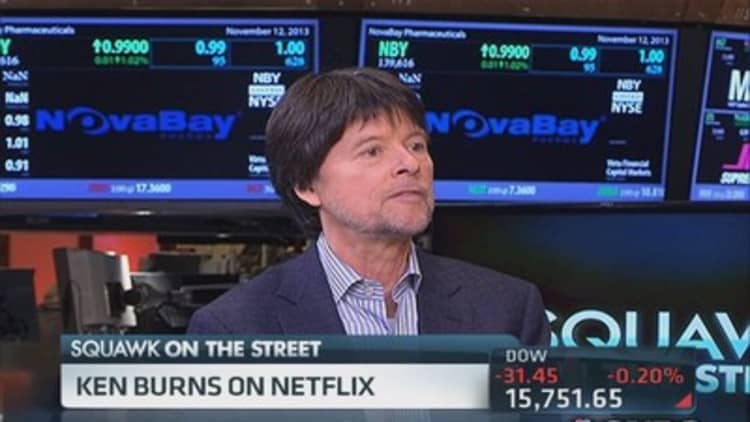A divided federal appeals court on Monday upheld a federal ban on political advertising on public television and radio stations, rejecting an argument that it unconstitutionally violated the First Amendment.
By an 8-3 vote, the 9th U.S. Circuit Court of Appeals in San Francisco let stand a 1981 federal statute that prohibits public stations from transmitting paid advertisements on behalf of political candidates, issues of public importance or interest and for-profit entities.
Supporters of the law have expressed concern about turning public stations into new forums for airing political attack ads, undermining their ability to emphasize public affairs and educational programming such as "PBS NewsHour" and "Sesame Street."
The case dates back a decade, when the Federal Communications Commission fined Minority Television Project, which operated KMTP-TV in San Francisco, $10,000 for running paid ads from companies such as Ford Motor, General Motors, Korean Air Lines and State Farm.
Writing for the 9th Circuit majority, Circuit Judge M. Margaret McKeown said the FCC statute targets "the real threat—the influence of paid advertising dollars.''
(Read more: Director Ken Burns: Don't underestimate PBS)
She said this reflects Congress' view that programmers should be discouraged from trying to "follow the money'' and helps preserve the "essence" of public broadcast programming.
"Congress's determination that all three kinds of advertising posed a significant threat to public programming is supported by substantial evidence," McKeown wrote.
How much protection?
Minority Television Project will review the decision before deciding whether to appeal to the U.S. Supreme Court, their lawyer Walter Diercks said in a phone interview.
"Obviously, we're unhappy," said Diercks, a partner at Rubin, Winston, Diercks, Harris & Cooke in Washington, D.C.
(Read more: IRS targets 'dark money' in politics)

"We're talking about political speech and issue speech, which is speech of the highest rung, and we're giving it less protection than some forms of commercial speech."
The U.S. Department of Justice, which had defended the law in court, was not immediately available for comment.
In August 2009, a federal district judge in San Francisco upheld the statute.
A three-judge 9th Circuit panel in April 2012 voided the ban on political and public issue ads and upheld the ban on ads for goods and services by for-profit entities.
Monday's decision affirmed the district court ruling.
(Read more: Forbes Media explores a sale)
Chief Judge Alex Kozinski of the 9th Circuit dissented from Monday's decision, saying evidence supporting the FCC limits "doesn't pass muster under any kind of serious scrutiny."
The influential conservative also urged that judges, including on the Supreme Court, reconsider the proper standard for reviewing broadcast restrictions.
"I would set public television and radio free to pursue its public mission to its full potential,'' he wrote. "We'd all be better off for it."
The case is Minority Television Project Inc v. Federal Communications Commission et al, 9th U.S. Circuit Court of Appeals, No. 09-17311.
—By Reuters

